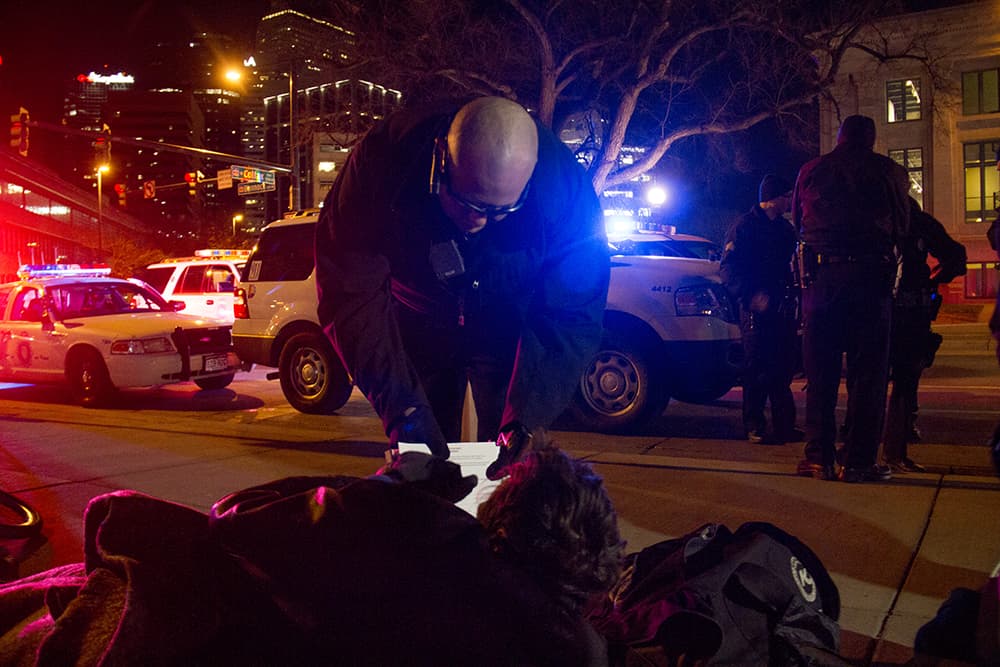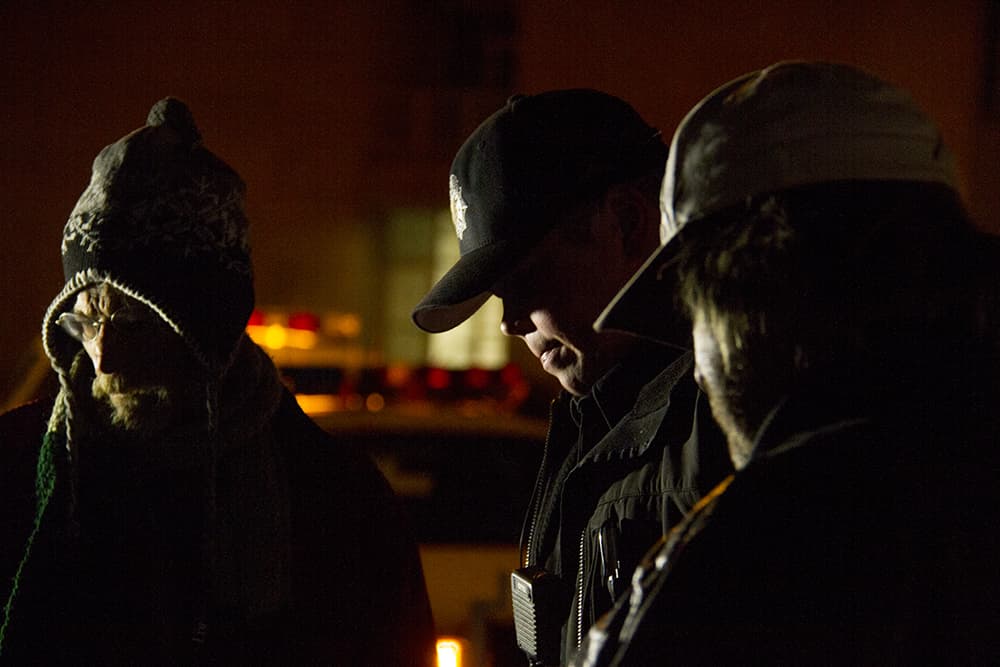
The American Civil Liberties Union of Colorado has sent a letter to Denver's elected leaders asking police not to seize blankets, sleeping bags and other survival gear from people living outside.
The confiscations have happened during police sweeps of homeless people's belongings from public spaces. The city usually makes those belongings available for retrieval at a central location, but in at least three recent cases police have seized gear as evidence. (The allegation is that they violated Denver's public camping ban.)
The ACLU argues that the ban is "cruel" because it "allows Denver residents to sleep outside on a night with sub-freezing temperatures only if the resident does so without a blanket." The city of Denver contends that long-term encampment in public spaces comes with sanitary and safety issues, and that it wants to get people off the streets and into services.
Denver police spokesman Sonny Jackson earlier said officers provide a list of available resources and offer a ride to a local shelter for those willing to go. Officers then provide verbal warnings followed by written warnings.
“If the same person is contacted again within seven days or less of the written warning and are still in violation of the law, they can be issued a citation at which point police can collect evidence to support their case,” he wrote in an email.
“Last week, after multiple notifications, we issued five citations to three individuals who refused to comply with officers’ requests. The evidence of the camping violation was seized and placed into the property bureau.”
The ACLU's letter demands that the city end the confiscation of tents, blankets and other gear; suspend enforcement of the camping ban through the winter; and end its coordinated efforts to clear people or their possessions from public areas.
“It is not an inherent crime to sleep outside, and many people right now have no other viable option. Denver’s shelters are simply unable to serve all people in the Denver area experiencing homelessness, even in the short term, much less as a long-term solution. Until real solutions become Denver’s priority, the city’s ongoing policing-first approach to homelessness is a cruel waste of funds, curtailing fundamental constitutional rights, causing deep human suffering, and endangering lives,” ACLU of Colorado director Nathan Woodliff-Stanley wrote in the letter.
Julie Smith, a spokeswoman for Denver Human Services, says that local shelters have capacity for more people, and that sweeps (a term the city does not like) always come with an effort to get people help.
“Especially with the weather getting cold, we do not want people sleeping outdoors,” she said. “It is really dangerous. Please seek shelter. We will have search and rescue out. We have transportation. We have expanded shelter space.
People experiencing homelessness might choose not to enter a shelter for a number of reasons, including a lack of somewhere safe to keep their possessions and feelings of discomfort or fear in the highly regulated shelter environment.











